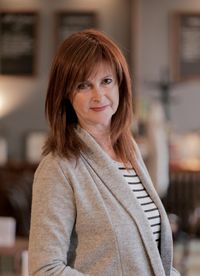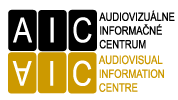|
|
|||
Interview with Lívia Filusová
 Lívia Filusová is a Slovak producer. In 2006 she founded the production company FURIA FILM and has produced over 30 films to date. The documentary The Town of Flying Words (2006, d. Tina Diosi) and the fiction film In Silence (2014, d. Zdeněk Jiráský) were screened at Karlovy Vary. She completed the drama The Cellar (2018, d. Igor Voloshin). The latest Charlatan (2020, d. Agnieszka Holland) is presented in a World Premiere in Berlinale Special Gala.
Lívia Filusová is a Slovak producer. In 2006 she founded the production company FURIA FILM and has produced over 30 films to date. The documentary The Town of Flying Words (2006, d. Tina Diosi) and the fiction film In Silence (2014, d. Zdeněk Jiráský) were screened at Karlovy Vary. She completed the drama The Cellar (2018, d. Igor Voloshin). The latest Charlatan (2020, d. Agnieszka Holland) is presented in a World Premiere in Berlinale Special Gala.
When and how FURIA FILM became co-producer of Charlatan?
- At the time when we were wrapping up The Cellar, which was also an international project, I was approached with an offer to co-produce Charlatan. Reading the script, I immediately saw the immense potential of the project and the name of Agnieszka Holland as the director also played an important role in my decision-making. At the following meetings with the Czech co-producer, I learnt further details of the project, including the other team members: people like DoP Martin Štrba, costume designer Katarína Štrbová Bieliková, set designer Milan Býček, or lead actor Ivan Trojan. All of that indicated a strong film with a strong potential to succeed.
What qualities does a project has to have to make you interested?
- I am drawn to stories. The story has to touch me on a personal level, sync with me. When reading the script is straining labour, I simply don’t give it a second chance. Then I continue to assess what might be the benefit for the audience, the importance and urgency of the themes and ideas, taking their effect on the society into the account. At the same time, I consider the intelligibility of the film for the audiences outside Slovakia.
- Being open to all genres, I tend to stories of ordinary people, their everyday lives and problems, the relation between individuality and society. I prefer simple narratives with a strong message. At the same time, I don’t see any allure in political themes. One of the reasons why I avoid them is the enormous frustration from the current political leaders that you see everywhere. In no way I mean to diminish the importance of such films, they are important. But I feel that because of the media people are not living their own lives anymore, but rather the lives of the politicians and political scandals.
- As a producer I, of course, follow the trends in the market and choose projects according to what is missing and demanded.For some time already, I have been observing a certain uniformity of themes in Slovak films. That is something I would like to avoid.
As a producer, how much do you get involved in the creative process?
- I aim to create harmony between the creative departments, so that all the creative work leads to a result we all can be contended with. I leave an open enough space for the filmmakers but I have my say to changes and shifts of the original concept. I prefer to be present at every stage of the film production, from the scriptwriting, when the story is formed, until the final cut. The intensity of my interventions depends on the level of understanding with the scriptwriter, later with the director, and other creative team members. It might not look like the best solution but filmmaking is about finding a compromise. I believe that the producers should be in control of the whole process and that more often than not their interventions are meaningful and important for actually making a film, and its acceptance by the audience.
Before Charlatan, you worked with an international team while making The Cellar. What were the differences and in what way was the work on these projects similar?
- Every project has its specificity and needs a different approach. For The Cellar, I was the main producer and I worked with Russian director, French lead actor, Russian lead actress, as well as with Czech and Slovak actors and international crew. Russian director (Igor Voloshin – ed.) was not acquainted with the Slovak situation and realia; in a quite short time, he had to familiarize himself with them. He didn’t know our actors either. That made the development of the film, casting, location scouting, and the shooting itself a bit more challenging. Moreover, we were shooting in three languages. That went surprisingly well and we all managed, only proving that in art the language is not a barrier.
- As for Charlatan, the situation differed. Agnieszka Holland knows the Czech Republic and Slovakia very well, she is familiar with the mind-set of people, with the country, as she had already worked here on several films. That was a big asset. Still, the difficulty level of the preparation and making of this film was high too.
- Nonetheless, the zeal and endeavour of the teams working on either of the films were comparable: maximum commitment and high level of professionalism. You could see that everyone found working with Igor Voloshin or Agnieszka Holland profoundly inspiring and enriching.
What are the upsides and what are the downsides of working with international(ly known) directors?
- In the current globalized world, international cooperation on a cultural project became a standard. This trend found its application also in the film industry and I am glad that also in Slovakia, we support projects of international nature.
- As for the upsides of working with renowned directors, I would name the higher credit of the work-in-progress, higher attractiveness of the film when we speak of its promotion and distribution and it also guarantees a certain level of success. Acclaimed directors receive countless offers and well-written scripts.
- When they decide to take up a project, it is a great success for the producer, but also a great challenge and responsibility. Everything must work 100% smoothly, all the details must be cleared beforehand and of course, they must be respected. Flexibility in fulfilling the director`s demands is a must, especially during the shooting. You have to be exact in communicating what is possible in the process of filmmaking, whether we speak of money or the execution.
- The downside is the limited availability of the director and thus the need to accommodate the shooting schedules to their openings. I haven`t met with any insurmountable obstacles. Mainly, and I know it already is a cliché, but it is true: bigger the persona, more humble and human approach in communication and problem-solving. Moreover, they are and endless sources of inspiration and artistic visions.
Could you tell us something about your other upcoming films or projects?
- We have just finished another co-production project, this time between Czech Republic, Slovakia, and Latvia called The Pack that should enter the Slovak distribution in autumn 2020. The film, is set in the ice hockey community deals with the issues of being a teenager, bullying, and the need of being accepted, being part of the team that is playing not exactly fair.
- There are two other projects in the development. One, Lovec, builds on the Slavic mythology but is set in the present times. It points out to the Forces that intervene with our lives and influence our actions. Production-wise, it will be a difficult project that I plan to realize as a European co-production. The other project is on the mainstream side, and it will be a comedy.
Related AIC articles:
Agnieszka Holland's latest film Charlatan (2020) will world premiere in Berlinale Special Gala.
published: 12.02.2020
updated: 12.02.2020




